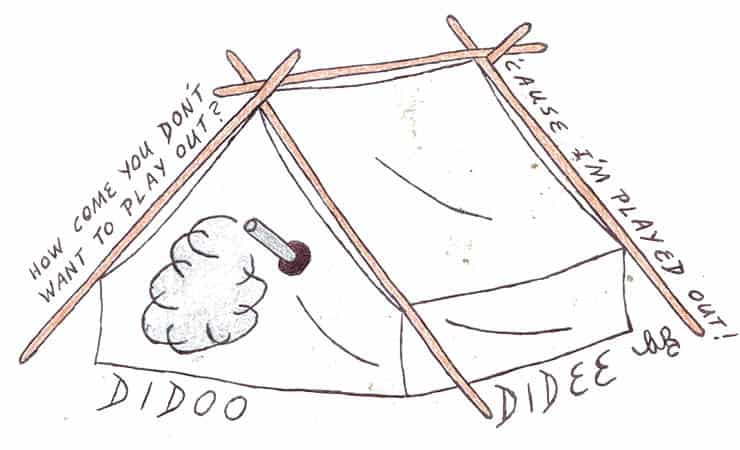 People who write a lot have different perspectives and relationships with words than those who simply read or say them. If the pen is truly mightier than the sword, (as said English author Edward Bulwer-Lytton in 1839), a writer’s tools could be favourably compared to the mightiest of weapons if he or she was out to slay dragons or defeat nations. But most writers only want to communicate thoughts to others and most stories are just small edifices constructed with the essential building blocks of literature called words.
People who write a lot have different perspectives and relationships with words than those who simply read or say them. If the pen is truly mightier than the sword, (as said English author Edward Bulwer-Lytton in 1839), a writer’s tools could be favourably compared to the mightiest of weapons if he or she was out to slay dragons or defeat nations. But most writers only want to communicate thoughts to others and most stories are just small edifices constructed with the essential building blocks of literature called words.
Just as a carpenter must know wood, a mason must know stone, an artist must know colour and a musician must know melody, a writer must know words if the goal is to build a readable story, no matter if it’s intended for publication or just for the fun of it. Your correspondent has had a love affair with words since the first successful sale of some to a publication at the age of nine in return for the staggering sum of $5. This bonanza came at the same time five hours of boring work carrying golf clubs for cheapskate hackers netted only $2.75.
Cheapskate: (n.): also cheap skate, “miserly person,” 1896, from cheap (adj.), second element perhaps from American English slang skate or “worn-out horse” (1894), which is of uncertain origin.)
The first word I truly fell in love with, as a young teen not yet old enough to drive was:
Serendipity (n.): 1754 (but rare before 20c.), coined by Horace Walpole (1717-92) in a letter to Horace Mann (dated Jan. 28); he said he formed it from the Persian fairy tale “The Three Princes of Serendip,” whose heroes “were always making discoveries, by accidents and sagacity, of things they were not in quest of.” The name is from Serendip, an old name for Ceylon (modern Sri Lanka).
At the age of 72, I am still in love with Serendipity, for she has served me well all these years and I’ve put her to work whenever possible, but she did attract some competition when I was a young adult fighting the lure of the quill.
Ubiquitous (adj.): “being, existing, or turning up everywhere,” 1800, from ubiquity + -ous. The earlier word was ubiquitary (c. 1600), from Modern Latin ubiquitarius, from ubique.) This word was introduced to me by a beautiful young woman from Ontario I met in Dawson City in the early 70s who seemed to be everywhere and was always happy to see me, so I married her.
Of course, not all words end with love stories and marriage, such as:
Awesome (adj.): 1590s, “profoundly reverential,” from awe. Meaning “inspiring awe or dread” is from 1670s; weakened colloquial sense of “impressive, very good” is recorded by 1961 and was in vogue from after c. 1980. Related: Awesomely; awesomeness.)
I grew to loathe the modern misuse of that word but not this next one.
Loathe (v.): Old English laðian “be hateful or displeasing,” from lað “hated; hateful” (see loath). Cognate with Old Saxon lethon “be evil or hateful,” Old Norse leiða “disgust.” Main modern sense of “to hate, be disgusted with” is attested by c. 1200. Impersonal use (it loathes me = “I am disgusted with it”) persisted through 16c. Related: Loathed; loathing.)
The word I currently loathe the most is problematic (adj.): c. 1600, “doubtful, questionable,” from French problematique (15c.), from Late Latin problematicus, from Greek problematikos “pertaining to a problem,” from problematos, genitive of problema (see problem). Specific sense in logic, differentiating what is possible from what is necessarily true, is from 1610s. Related: Problematical (1560s); problematically.) It is the modern equivalent of awesome and is definitely NOT cool (adj.): Old English: figuratively, of persons, “unperturbed, undemonstrative, not excited or heated by passions,” from Proto-Germanic *koluz (source also of Middle Dutch coel, Dutch koel, Old High German chuoli, German kühl “cool,” Old Norse kala “be cold”), from PIE root *gel- “cold; to freeze.”
Also totally not cool is a Latin phrase I hope to never hear again after 2020:
Quid pro quo: 1560s, from Latin, literally “something for something, one thing for another, or This for That” from nominative and ablative neuter singulars of relative pronoun qui “who” (from PIE root kwo-, stem of relative and interrogative pronouns) + pro “for” (see pro-) + quo, ablative of quid.
Isn’t this fun, Donald?
Fun (n.): “diversion, amusement, mirthful sport,” 1727, earlier “a cheat, trick” (c. 1700), from verb fun (1680s) “to cheat, hoax,” which is of uncertain origin, probably a variant of Middle English fonnen “befool” (c. 1400; see fond). Scantly recorded in 18c. and stigmatized by Johnson as “a low cant wait word.” Older senses are preserved in phrase to make fun of (1737) and funny money “counterfeit bills” (1938, though this use of the word may be more for the sake of the rhyme). See also funny. Fun and games “mirthful carryings-on” is from 1906.
You can play by searching Online Etymology Dictionary. It’s a good cure for pre-season cabin fever in November.
And, finally, everything in life has a beginning, a middle and an end (n.): Old English ende: “end, conclusion.”)




